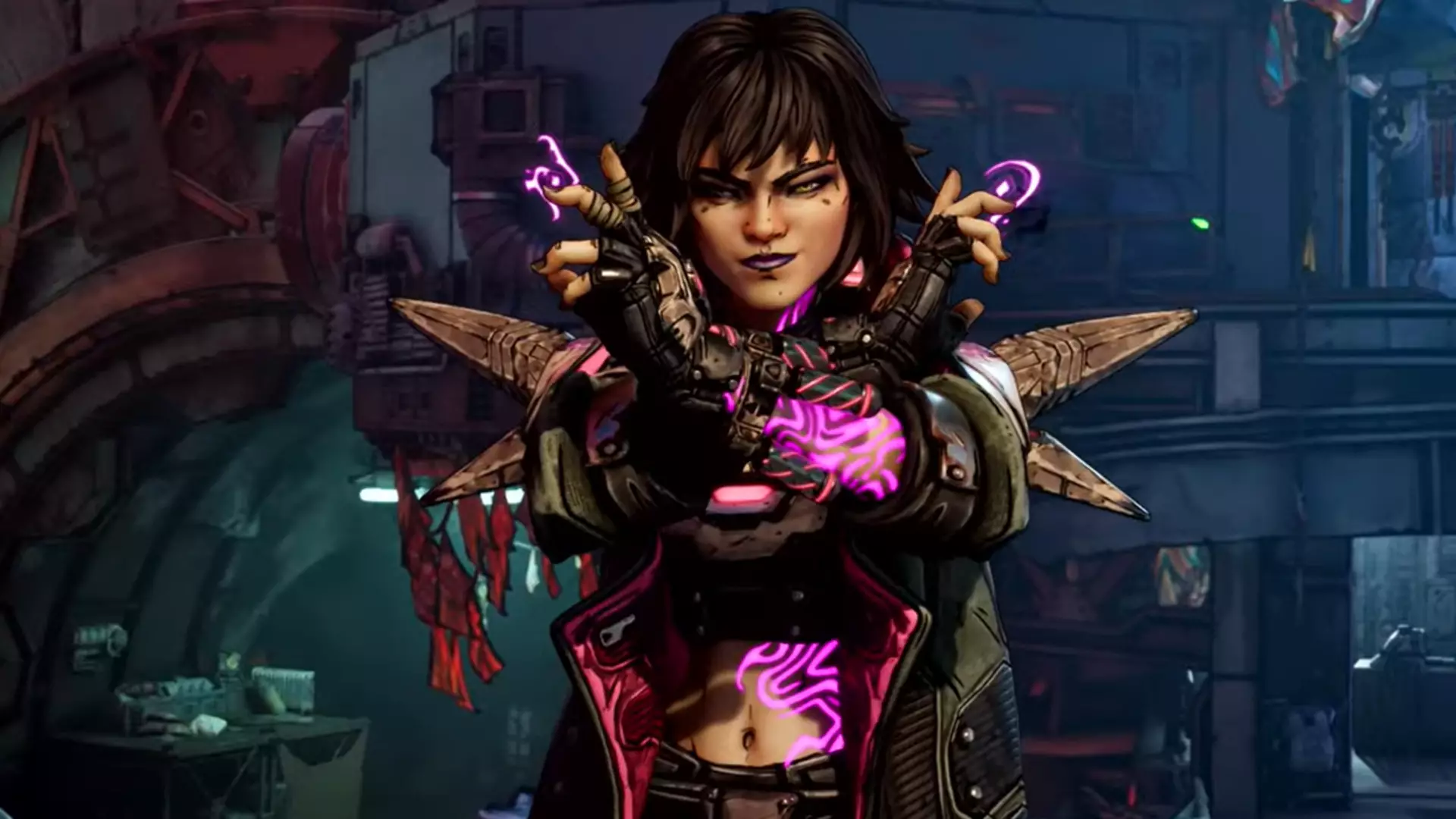The gaming world is rife with endless debates—graphics versus gameplay, story versus mechanics, and most recently, the cost of entry into beloved franchises. With the anticipation for Borderlands 4, a flagship title in the looter-shooter genre, comes the inevitable question: will players shell out $80 when it launches? Randy Pitchford, the CEO of Gearbox, has stepped into the fray, asserting that he does not have the final say on pricing, while also insinuating that true fans would find a way to make it happen. This perspective warrants critique, particularly against the backdrop of today’s economic climate and the realities of gaming culture.
The Disconnect Between CEO and Gamer
In a recent statement, Pitchford likened the possibility of an $80 price tag to personal anecdotes about spending habits from his youth. As he recalls scraping together cash to purchase a 1991 Sega Genesis game, he nudged the gaming community to consider doing the same. However, this argument reveals a profound disconnect. The gaming landscape has evolved since the days when a premium title could be had for a comparable price to today’s standard. Adjusted for inflation, that Sega Genesis game would represent an approximation of $190 today, highlighting just how disproportionate his comparisons are.
Given that Pitchford emerged from a comfortable background—his father held a senior position within the U.S. intelligence community—it is reasonable to question the weight of his anecdote. While nostalgic tales of personal sacrifice can seem endearing, they risk trivializing the financial burdens many players face now. The cost of living has skyrocketed, and gaming is now competing for recreation time against rising expenses, such as healthcare, housing, and education. In a climate where budgets are stretched, $80 is not simply a marker of fandom; it’s an exclusionary price that can alienate even the most dedicated gamers.
The ‘True Fan’ Argument: A Double-Edged Sword
Pitchford’s assertion that real fans should be prepared to pay whatever it takes to enjoy Borderlands 4 can easily be viewed as elitist. It peddles the notion that loyalty to a franchise inherently involves financial sacrifice. This sentiment not only dismisses the varying economic situations of fans but also overlooks a significant aspect of gaming culture: the love for a franchise should not be measured by the depth of one’s pockets. The implication that financial investment is a testament to one’s passion is an unfortunate reality that exposes the elitism growing in the gaming industry.
As social media expands the dialogue between industry leaders and consumers, it seems increasingly out of touch for CEOs to dismiss concerns over pricing. In an era where microtransactions and subscription services aim to optimize profits, an outright acknowledgment of pricing discomforts by leadership could go a long way toward cultivating goodwill. Instead, the tough-love rhetoric—imploring fans to “just find the money”—can foster resentment, particularly when it comes across as tone-deaf.
The Broader Implication for Gaming Culture
The conversation around game pricing underscores a broader issue within gaming culture. The release of high-profile titles should facilitate open discussions about affordability and accessibility rather than dismissing fans with veiled rhetoric. To uphold the name “Borderlands,” a franchise celebrated for its unique art style and off-the-wall humor, the creators should ensure that financial barriers do not diminish the joy and excitement that accompanies each new installment.
Furthermore, the expectation that loyal fans must bend to the pricing whims of the industry only serves to widen the gap between the developers and their audience. A healthy dialogue around pricing, while exploring inventive pricing structures such as tiered editions or special discounts, could serve to reinforce the bond between players and creators. Fostering inclusivity in gaming is a noble endeavor, one that stands to enhance loyalty and engagement across all sectors of the player community.
Setting the Stage for Future Pricing Practices
Ultimately, the upcoming release of Borderlands 4 beckons for thoughtful pricing strategies that acknowledge both the dedication of fans and the broader economic realities they face. As we move further into the gaming realm, it is essential for voices like Pitchford’s to recognize that fandom should not equate to financial burden. There is immense potential for the gaming industry to evolve beyond traditional pricing models, aligning with community sentiments while continuing to deliver the compelling experiences players crave. If the industry truly values its followers, it must learn to listen and adapt, ensuring that gaming remains attainable for all, not just the financial elite.

